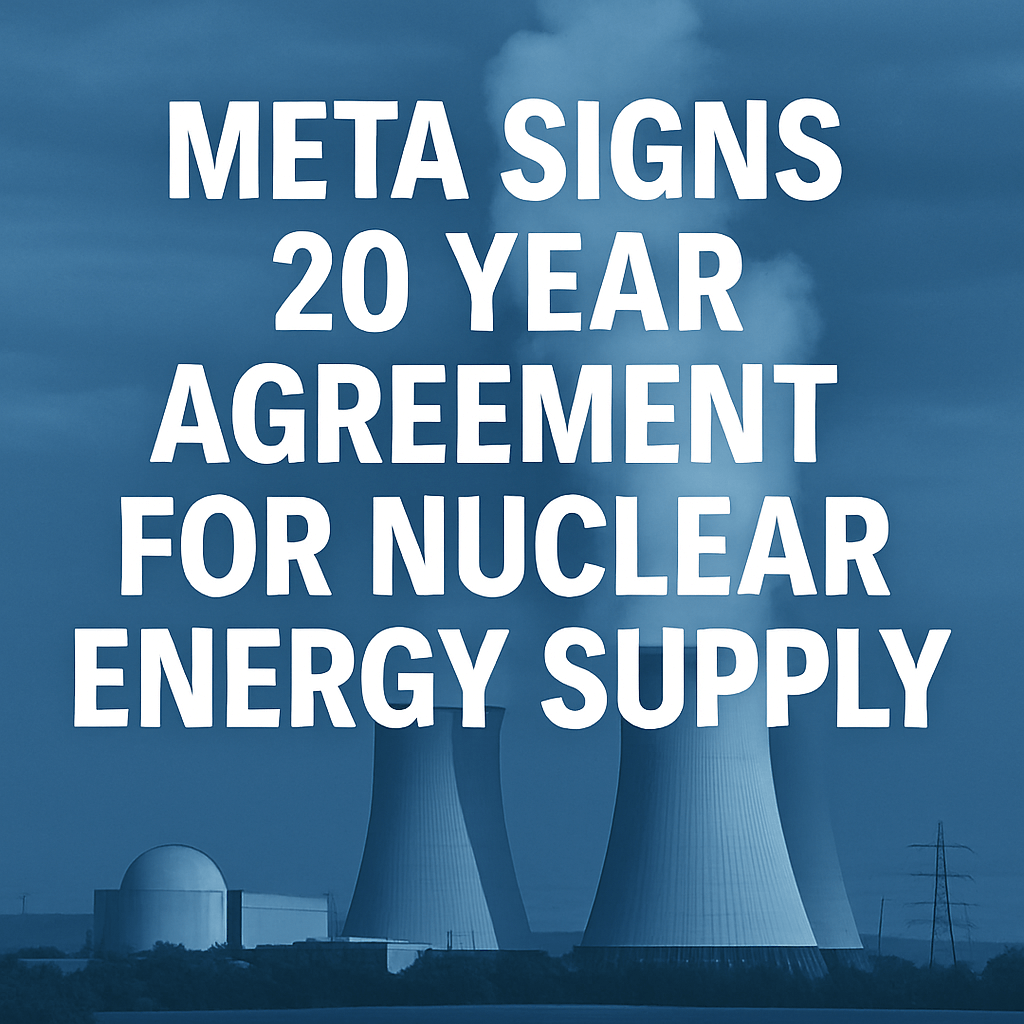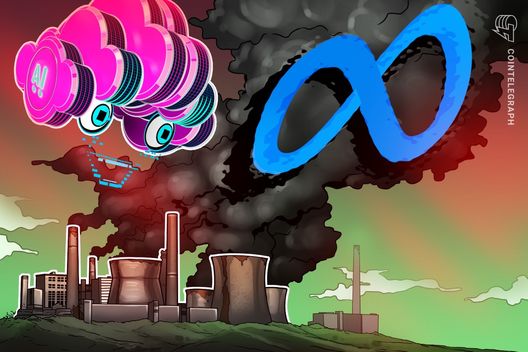Meta Signs 20-Year Agreement for Nuclear Energy Supply


In a significant move towards sustainable energy solutions, Meta Platforms, Inc. (formerly Facebook, Inc.) has secured a 20-year power purchase agreement with an Illinois-based nuclear facility. This deal will help the tech giant secure approximately 1.1 gigawatts of electricity, providing a dedicated source of energy to fuel its sprawling data centers and artificial intelligence (AI) operations.
The Implications of a 20-Year Nuclear Power Deal
Meta’s agreement marks a substantial commitment to nuclear energy as part of its long-term strategy to reduce its carbon footprint while supporting its growth in AI capabilities. The 1.1 gigawatts of power represents a considerable portion of the energy requirements for Meta’s extensive data operations, which have been expanding rapidly in recent years due to increasing demand for AI-driven services.
- Operational Efficiency: Nuclear energy provides a stable and reliable power source, crucial for data centers that must maintain constant uptime. This reliability can enhance operational efficiency, reducing costs associated with power fluctuations.
- Carbon Emissions: The shift towards nuclear energy reflects Meta’s ongoing commitment to sustainability. The company aims to achieve net-zero greenhouse gas emissions across its entire supply chain and value chain by 2030, making this energy sourcing agreement a key component of that strategy.
Technical Aspects of the Nuclear Facility
The Illinois facility selected for this partnership likely employs advanced reactor technologies that offer improved safety and efficiency compared to traditional designs. Key technical features may include:
- Small Modular Reactors (SMRs): These are gaining attention for their potential to generate power at smaller scales and can be deployed incrementally. This flexibility makes them suitable for supplying energy to specific clients like Meta.
- Enhanced Safety Protocols: Modern nuclear plants incorporate superior safety measures, including passive cooling systems that reduce the risk of accidents and improve public confidence in nuclear energy as a viable alternative.
- Waste Management Innovations: Newer technologies are also focused on efficient waste reduction and management, aiming to address one of the major drawbacks of nuclear energy.
Meta’s Move in the Context of the Renewable Energy Landscape
This agreement comes at a time when tech giants are increasingly focused on sustainable energy sources. The global energy market is undergoing a transition towards renewable energy, yet nuclear power often emerges as a complementary solution due to its consistency and low carbon emissions. Experts suggest that:
“Nuclear energy can support renewable efforts by providing a reliable baseload power supply, allowing intermittent renewables like solar and wind to flourish without compromising grid stability.”
Meta’s strategic choice to incorporate nuclear energy highlights the importance of diverse energy portfolios for tech companies as they navigate a landscape of rising energy demands and climate responsibilities.
Future Prospects
Looking ahead, the partnership between Meta and the Illinois nuclear facility could set a precedent for other tech firms seeking sustainable energy solutions. Should this model prove successful, it may lead to additional investments in nuclear power across the tech sector. Analysts believe we may see similar arrangements emerge, illustrating a strong trend towards larger technology companies acknowledging their role in driving renewable energy developments.
Conclusion
As Meta embarks on this long-term partnership, it underscores a pivotal moment in the intersection of technology and energy. By choosing nuclear power to sustain its operations, Meta is not only addressing its massive energy needs sustainably but also setting a notable example for the industry at large.